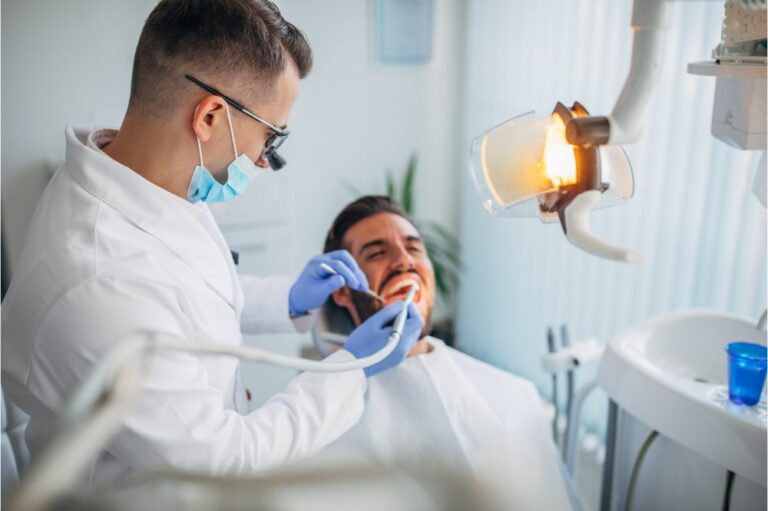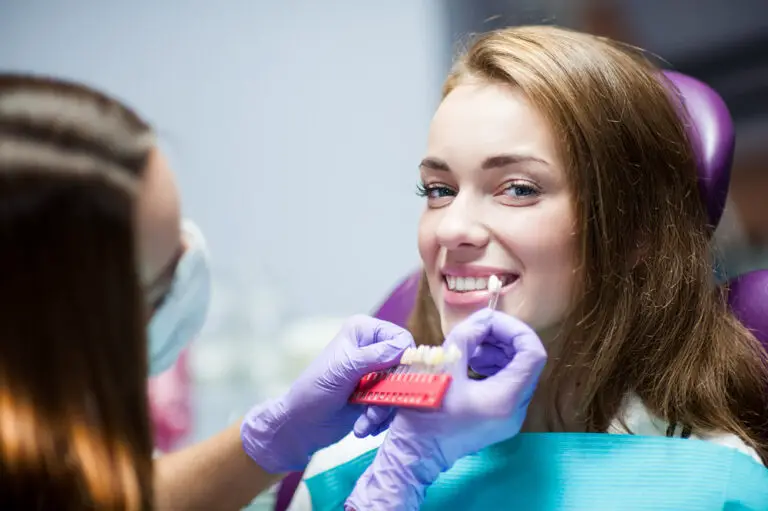Are you do a dental checkup, which involves taking a dental X-ray? Dental X-rays are an important tool for dentists as they allow them to assess your oral health beneath the surface of your teeth and gums. Dental X-rays are considered safe for most people.
However, are dental X-rays safe during pregnancy? If you are pregnant and due for a dental X-ray is safe to go ahead with it or should you postpone until you have given birth?
Continue reading the article as we answer these and other questions about dental care during pregnancy.
Why Do Dentists Use X-Rays?
Dental X-rays, which are also known as radiographs, are a non-invasive procedure. They allow dentists to diagnose various oral health issues that cannot be detected with the naked eye.
By analyzing X-rays, dentists can identify dental problems early before they become serious issues and start causing patients discomfort or pain. They can help prevent infections and other serious oral health problems and address them before they require more expensive and extensive treatment.
Types of Dental X-Rays
There is a range of X-rays dentists can use depending on the situation. For example, they can use them to identify cavities below the surface of a tooth, evaluate orthodontic issues, monitor how previous work such as root canals is progressing, and monitor a child’s dental development.
X-rays commonly used in dentistry include:
- bitewings for detecting tooth decay and periodontal, which are gum health problems
- full mouth series help establish a baseline of your overall dental health and include approximately twenty X-rays usually taken on your first visit to a new dentist
- panoramic X-rays are used to evaluate not just your tooth and gum health but the health of the whole mouth and the surrounding area
- periapical X-rays focus on a single area of your mouth. For example, if you have pain in a certain area or the dentist is doing a root canal.
All the above radiographs use electromagnetic radiation in short bursts to capture an image. In the X-ray images, issues such as cavities and infections look darker than healthy teeth and gums. The amount of radiation emitted during the image capturing is small and safe.
Are X-Rays Safe When You Are Pregnant?
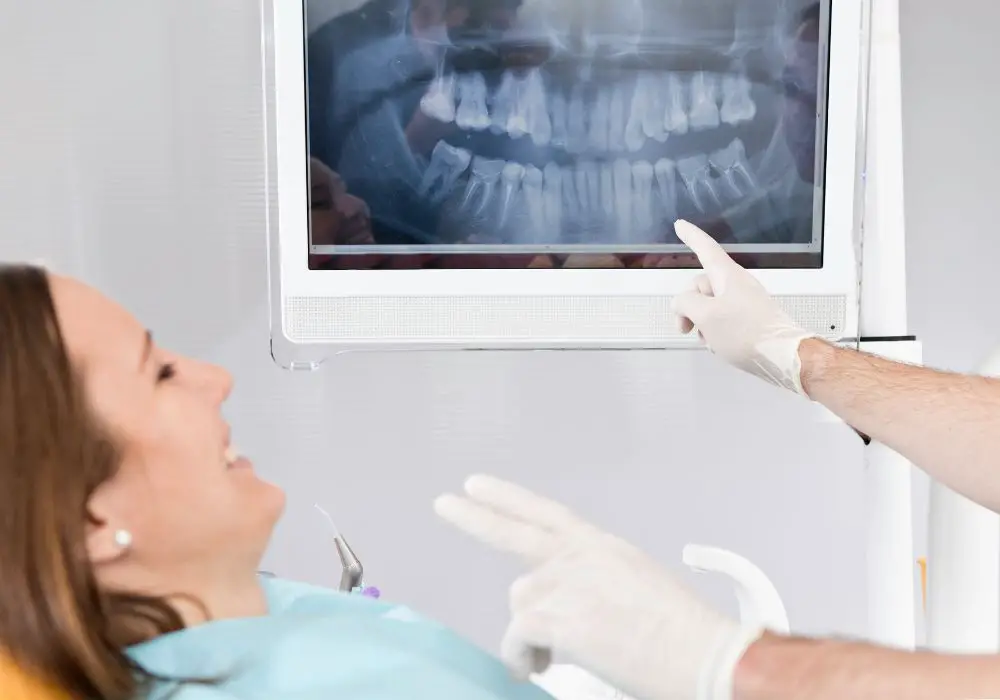
It is natural to be concerned about the health of your baby and worry about radiation exposure if you have to have dental X-rays. However, having dental X-rays while you are expecting is perfectly safe.
The American Dental Association (ADA) has stated that dental X-rays are safe for all, including pregnant women and children. When you have a dental X-ray, the exposure is focused on your mouth, away from the fetus and it will not harm it at all.
X-Ray Safety Standards
Both dentists and dental hygienists and their assistants have trained to deliver dental X-rays safely. They are required to follow strict safety standards published by the Food and Drug Administration (FDA).
All X-ray equipment must be licensed and inspected every year. The X-ray technologies are regulated by the local authorities as well as the state who also ensure the safety guidelines are followed by all dental practices.
Your and Your Baby’s Safety During a Dental X-Ray
Your dentist will ensure the safety of you and your unborn child by adhering to the safety guidelines, which include:
- only using equipment that has been licensed and inspected by the authorities
- placing a protective leaded apron on your abdomen, which will block radiation from the X-ray
- short exposure time
- lower level of radiation exposure than is used in most other imaging technologies used in the medical field
Dental diagnostic X-ray imaging does not use high levels of radiation that could harm a developing fetus. In addition, the focus is on the mouth, so it is not near the baby, who also has additional protection from the apron.
In addition, the potential to diagnose problems that could compromise the mother’s health is considered to outweigh the risks, which are minimal.
New Technologies Have Improved Safety of Dental X-Rays
Modern technologies have greatly improved the safety of X-ray imaging. Instead of photographic film that was used in conventional X-rays, today dentists can use digital images. This has greatly reduced the amount of exposure since digital images need approximately 80% less radiation exposure than film.
An additional advance has been technology known as Cone Beam Computerized Tomography, CBCT for short. It is used to create a 3D panoramic image of the whole dental anatomy of a patient. The images created using CBCT minimize radiation exposure and are more accurate than 2D X-rays.
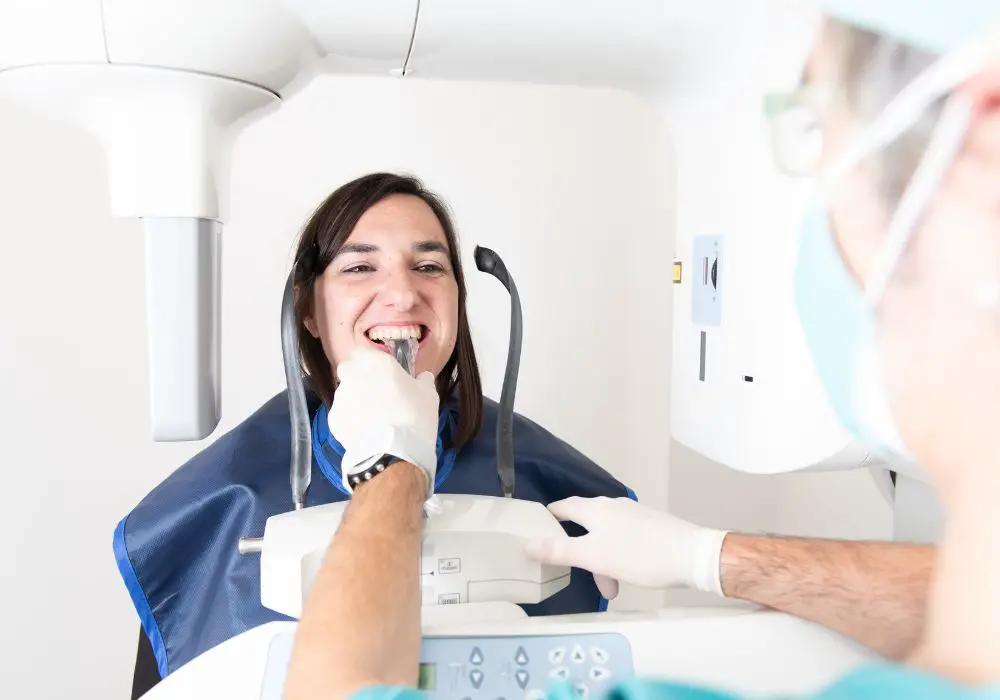
Should You Delay Having a Dental X-Ray if You Are Pregnant?
Dental X-rays are part of a comprehensive dental examination and an important diagnostic tool for dentists. The ADA recommends that all adults have a dental X-ray once every one or two years, depending on the overall oral health of the patient.
If you choose to delay your X-rays, it could mean that dental diseases, tooth decay, gum disease, or other dental issues go undiagnosed. If not noticed and addressed in time, the problems could get worse and cause pain and lead to more serious dental health complications.
Because the risks are minimal, it is best not to delay your dental X-rays. However, some patients choose to delay them slightly, just until they are through the first trimester. They do this because the first trimester is the most active time in the development of the fetus.
If you are pregnant or think you could be pregnant, make sure to disclose this to your dentist. You can also discuss any concerns you have about dental X-rays or other dental procedures with your dentist. They will be able to advise you further on these issues.
Oral Health Problems During Pregnancy
When you are pregnant, you may experience increased acidity in your mouth because of sugary cravings and morning sickness, For some pregnant women, hormonal changes can cause gingivitis. This is a gum disease where the gums bleed easily, become inflamed, and develop an exaggerated response to plaque.
If gingivitis is left untreated, it can become periodontitis, which is a more serious condition. Periodontitis causes the gums to recede and the teeth can become loose and fall out.
In the worst cases, dental issues such as periodontitis could lead to complications in pregnancy. For example, inflammation and periodontitis could result in pre-term delivery, low birth weight, and pre-eclampsia.
Is It Safe to Have Dental Surgery When Pregnant?
If you need dental surgery while you are pregnant, there are no reasons not to go ahead with it. Once your dentist knows you are pregnant, they will pick an anesthetic that is safe to use when you are expecting.
It is best not to delay your dental surgery because of your pregnancy. If the issue is not treated, it will have time to grow and you may end up needing more complicated and expensive surgery as a result. Dental issues could also lead to loss of teeth and even issues with your pregnancy.
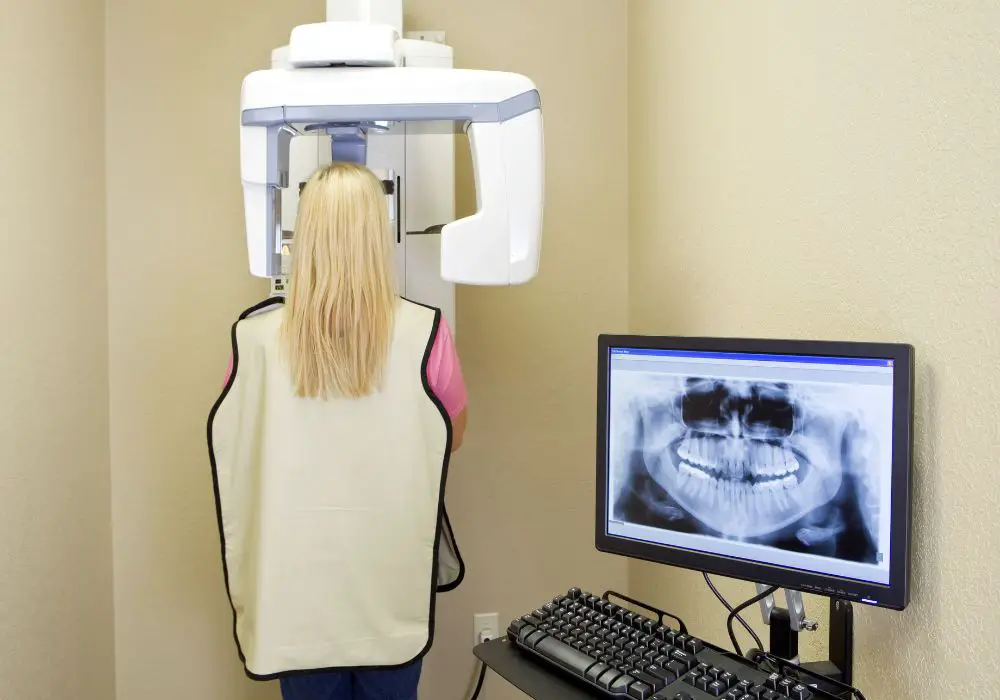
Plan Ahead
If you are planning to get pregnant, it is a good idea to include your oral health in your plans. Get an appointment booked with your dentist to get your teeth and gums checked in advance and then you will not have to worry about dental appointments, X-rays, or other procedures during the pregnancy.
During your appointment, you can also talk to your dentist about looking after your teeth when you are pregnant. They can advise you about potential changes that pregnancy can cause in your mouth and how to address them.
Looking After Your Teeth While Pregnant
It is just as important to look after your teeth while you are pregnant as it is at other times. It is the best way to prevent dental issues before, during, and after pregnancy. Keep up your dental hygiene by brushing twice a day and flossing once a day and do not skip scheduled dental checkups.
Help your teeth by eating a balanced, healthy diet. Your dentist or doctor can advise you on your diet. If you vomit because of morning sickness, rinse your mouth before brushing to avoid destroying the enamel on your teeth. A teaspoon of baking soda mixed with water can help neutralize the acid.
Conclusion
If you need a dental X-ray during pregnancy, you can safely go ahead with it as it will not harm your unborn baby. Modern technologies mean that the exposure time is much shorter than it used to be. In addition, your stomach will be covered by a protective apron.
While you may wish to delay your dental X-rays until you are through the first trimester, it is not advisable to delay them until you have given birth. Undiagnosed dental issues can get worse while you wait and even cause complications with your pregnancy. Ensure you tell your dentist you are pregnant and discuss any issues with them.



